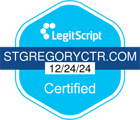Cocaine use disorder (CUD) is one of the most challenging substance use disorders to manage. Scientists think that cocaine is so powerful due to the “priming effect” it can have on our neurology. Priming refers to your brain having the same, higher tolerance for cocaine that built up during habitual use, even after quitting it for a sustained time. This effect may make it likelier that a person binges on cocaine or relapses on it.
Unlike treatments for other drugs, which often include a mix of therapy and medication, managing cocaine dependence may not be that straightforward.
Here’s the reality:
- Many people do try cognitive behavioral therapy (CBT) outside of recovery centers or motivational interviewing, but results can be hit or miss.
- At the moment, there’s currently no proven, FDA-certified, effective, or popular medication to treat CUD. However, there has been some exciting development with the drug dexamfetamine in the last decade, especially for people who struggle with comorbidity, and have to manage both opioid and cocaine dependence at the same time.
- Even the best-known CUD therapy methods could have high dropout rates.
None of this is to say that traditional cocaine treatments don’t work, but because the brain reacts differently to cocaine compared to other substances, researchers have been working hard to find effective medications.
Some options, like long-acting stimulants or medications that affect dopamine systems, may be promising, but nothing monumental is currently in the approval process. For now, many clients and care teams rely on therapy-based approaches, faith-based treatments, and lots of patience.
How St. Gregory Treats Cocaine Use Disorder in Iowa
At St. Gregory Recovery Center, treating CUD means combining personalized treatment plans, structure, support, and weekly therapy sessions through intensive outpatient programs (IOP).
Whether you prefer an outpatient program or a more intensive approach, here’s how treatment with us may look:
- Group and individual therapy multiple times per week.
- Optional involvement of family members.
- Encouragement to attend peer support groups outside of formal treatment.
- Residential inpatient care is also always on the table if you feel you need a more structured, supervised, and sustained environment while in recovery.
- Relapse prevention support and education.
- You can also utilize our round-the-clock detox services, where trained, empathetic professionals who understand how powerful cocaine is can help your body transition from a substance-filled state to a substance-free state.
This type of regular contact—seeing someone multiple times a week—tends to be more effective than occasional check-ins or abruptly transitioning back to daily life after completing a residential program. Research shows that even if outcomes look similar at first glance, frequent therapy visits may help improve your mood, reduce your use, and boost your quality of life.
In addition to therapy and counseling, St. Gregory could help you explore two especially helpful approaches:
- Voucher-Based Reinforcement Therapy (VBRT): Clients earn vouchers for achieving specific substance-free goals. These vouchers can be exchanged for real purchases or services.
- CBT for Relapse Prevention: This therapy is geared toward helping individuals recognize triggers and learn healthy ways to handle cravings and stress.
Explore Cocaine Contingency Management in Des Moines
If you’re feeling like nothing is working for your CUD, there’s hope. Contingency management has garnered significant attention for one simple reason: it’s effective. Contingency management rewards positive behaviors, and group therapy could help reinforce its positive effects. In a large research review, this approach was the only treatment that consistently helped people reduce their cocaine use.
While other therapies had mixed results, this one stood out. Even if it’s not a mainstream program at St. Gregory, we can help you find resources to implement it into your life. Contingency management may not lead to long-term change for everyone immediately, but it can be a starting point. This approach is all about giving you something tangible to work toward:
- Contingency management typically involves substance screenings, scheduled or otherwise.
- Every time you meet a goal, like testing negative for cocaine, you get a reward.
- These rewards could be vouchers (extending into VBRT), gift cards, or other items that are actually useful in your everyday life.
- Over time, these positive reinforcements help reshape habits and build new routines.
Get Help For Cocaine Dependence in Bayard, IA
If you’re in the Des Moines or Bayard areas and ready to try a fresh, science-backed approach, contingency management could be the support you’ve been looking for. It’s practical. It’s proven. And it could help you reclaim your life one small win at a time. Contact us today to start cleansing cocaine from your life.












